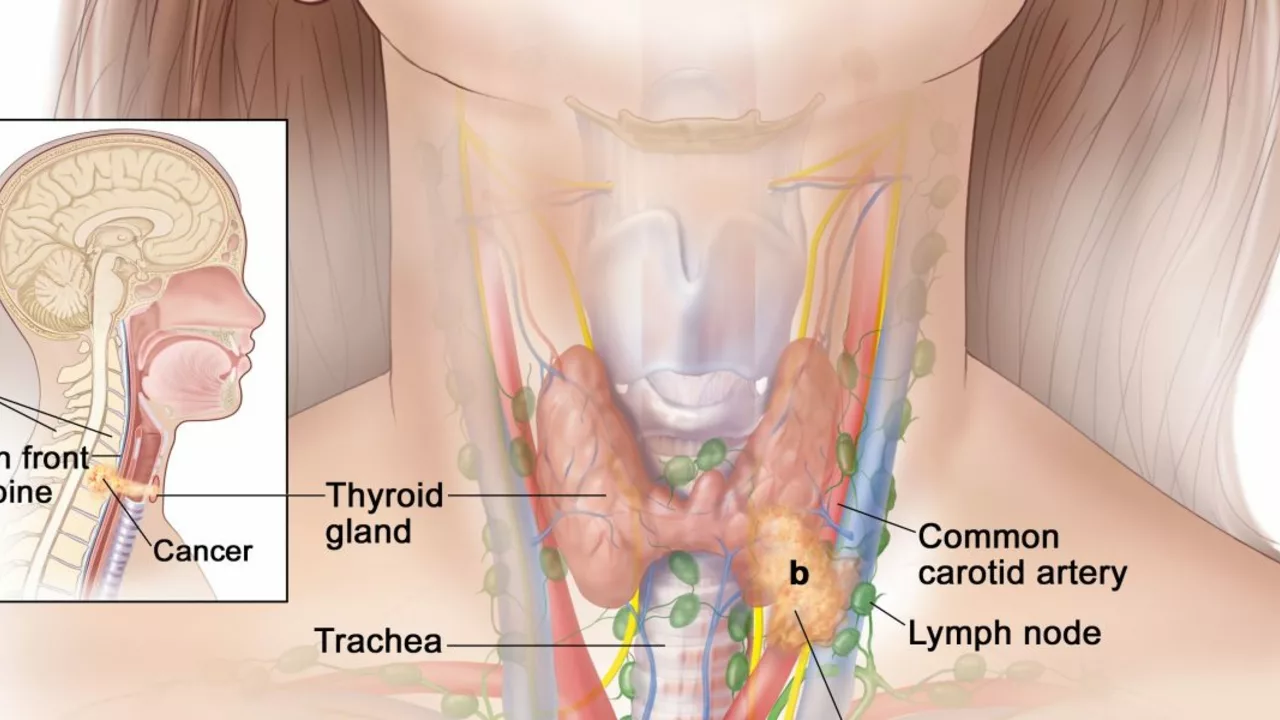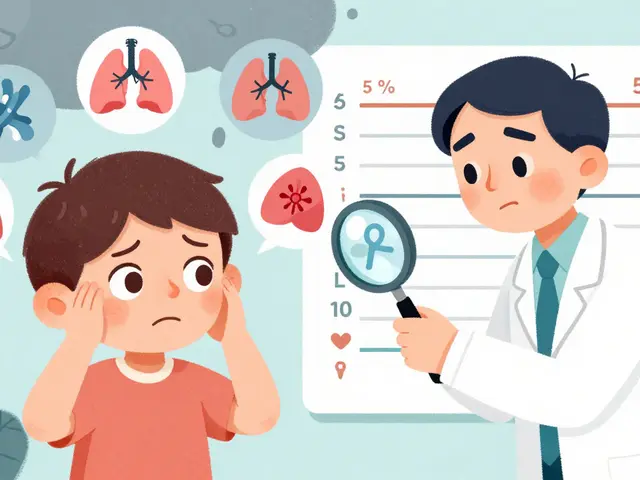Thyroid deficiency (hypothyroidism): what to watch for and what to do
About 4–5% of people have low thyroid function and many more have mild, unnoticed cases. If you feel tired despite sleeping, gain weight with no clear reason, or get cold easily, your thyroid could be the cause. This page gives clear, practical steps you can take right away: how doctors check for low thyroid, what treatment usually looks like, and simple everyday tips to stay stable.
How doctors diagnose it
Diagnosis usually starts with one blood test: TSH (thyroid-stimulating hormone). A high TSH commonly means the thyroid is underactive. Doctors also check free T4 to see how much active hormone is circulating. If results are unclear, they may test for thyroid antibodies to find out if your immune system is attacking the gland (Hashimoto’s). Testing is simple, fast, and the results tell your doctor whether you need medication or closer monitoring.
Treating and managing low thyroid
The main treatment is a daily synthetic hormone called levothyroxine. It replaces the hormone your thyroid isn’t making. Most people take one pill each morning on an empty stomach, 30–60 minutes before breakfast, so absorption is steady. If you take calcium, iron, or some antacids, wait at least four hours—those reduce how much hormone your body absorbs. Your doctor will start a dose and recheck TSH after 6–8 weeks, then adjust until levels and symptoms improve.
Special situations matter: during pregnancy the dose often goes up, and older adults or people with heart disease may need smaller starting doses to avoid stress on the heart. If you switch brands or take supplements like biotin, tell your doctor—those can change lab results or how the medication works.
Besides pills, simple lifestyle steps help. Keep a consistent routine for taking medicine. Avoid large changes in iodine intake (don’t suddenly start high-dose iodine supplements). Eat a balanced diet, move regularly to help energy and weight, and manage stress and sleep—these won’t fix the gland, but they make treatment work better.
Watch for red flags: worsening fatigue, very slow speech, low body temperature, or confusion can signal severe untreated hypothyroidism and need urgent medical care. If symptoms return after starting treatment, don’t guess—get your TSH checked. Small dose tweaks fix most problems.
If you suspect thyroid deficiency, ask your primary care doctor for a TSH and free T4. The testing is straightforward and treatment is usually simple and effective. With the right dose and a few habits—timing your pill, avoiding interactions, and regular blood checks—you can feel like yourself again.
In my recent blog post, I discussed the link between thyroid deficiency and dry skin. I explained how an underactive thyroid can lower your body's sweat production, leading to dry and flaky skin. I also provided some helpful tips to manage these symptoms such as staying hydrated, using moisturizers, and eating a balanced diet. Regular check-ups are also crucial in monitoring your thyroid levels. This information can greatly aid those suffering from thyroid problems and are dealing with dry skin issues.
View Details

